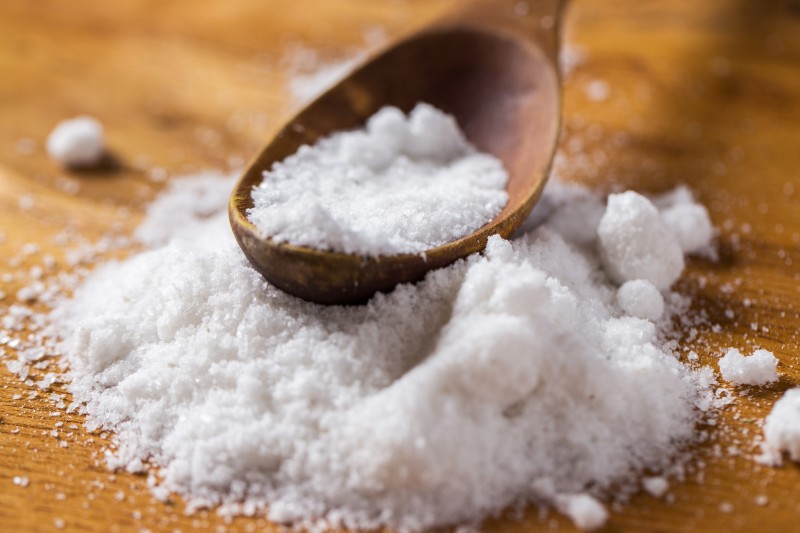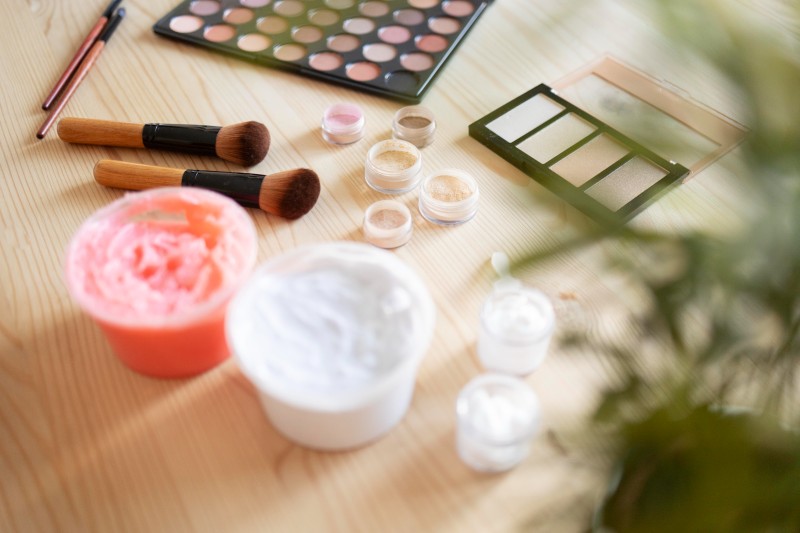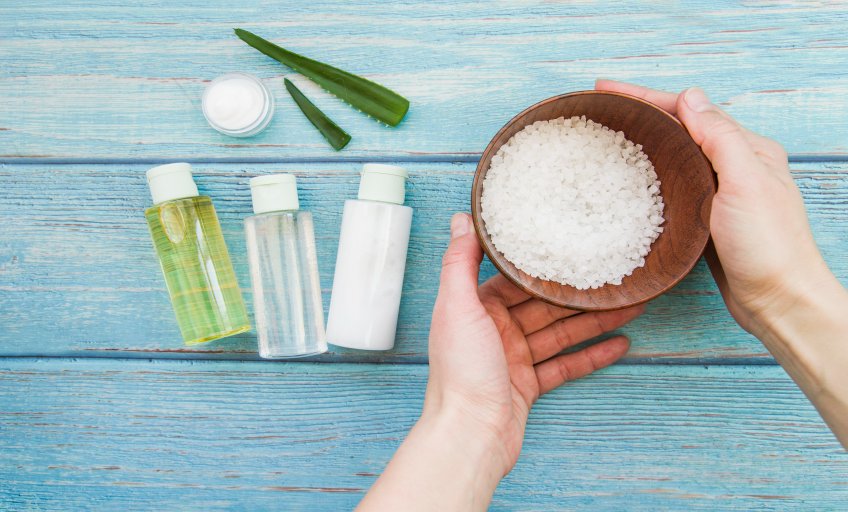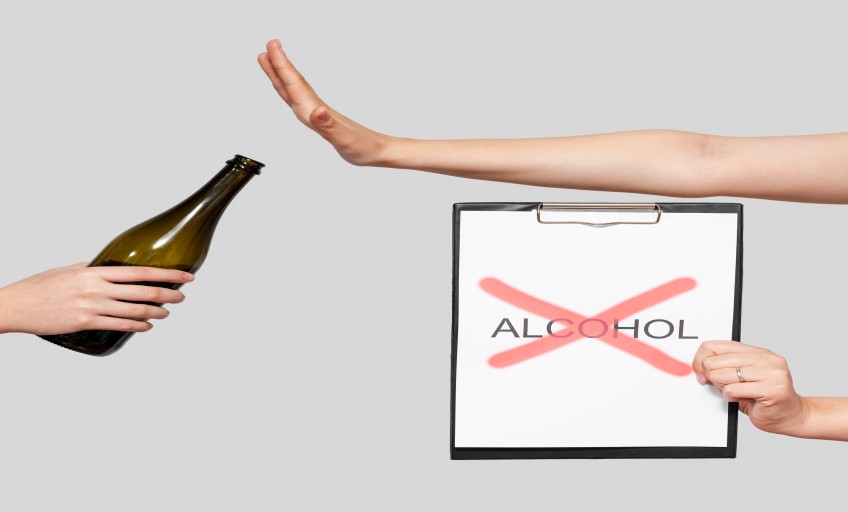Key Takeaways
- Parabens are a group of chemicals used as preservatives in cosmetics, foods, and drugs.
- They are found in deodorants, shampoos, lotions, face powder and more.
- Some commonly used parabens are methylparaben, propylparaben, butylparaben, and ethylparaben.
- Sulfates create a lather and help remove dirt and oil from the skin and hair.
- They are used as a cleansing powder, foaming agent and emulsifier.
In the ever-evolving skincare world, ingredient awareness is necessary to maintain healthy and radiant skin. Two such ingredients that are focal points in skincare safety are parabens and sulfates.
What you need to know:
- What are parabens?
- How to look for parabens?
- What are sulfates?
- Role of sulfates in cosmetics
- Why are parabens used in cosmetics?
- Products that contain parabens
- Practise good skincare
What are parabens?
Parabens are a group of synthetic chemicals used as preservatives in cosmetics and skincare products. Adding them increases the shelf life of skincare products by preventing the growth of bacteria and molds.
They have been scrutinised due to their potential impact on skin health and well-being. They adversely affect consumer health, commonly causing skin sensitivities and allergies. Research also indicates that they may mimic the hormone estrogen in the body. Estrogen is a female hormone that can stimulate normal and cancerous breast cell growth and division. In addition to increasing the risk of breast cancer, hormone disruption caused by parabens can also contribute to weight gain, the early onset of puberty, and irregular menstrual cycles.
How to look for parabens?
Parabens in cosmetics include makeup, moisturizers, hair care products, and shaving products. Many deodorant brands may also contain parabens. Cosmetics sold to consumers in stores or online have a list of ingredients. This information can help determine whether a product contains an ingredient you wish to avoid. Parabens are usually easy to identify by their name, such as methylparaben, propylparaben, butylparaben, or ethylparaben.
What are sulfates?

Sulfates are surfactants (substances that, when added to a liquid, reduce its surface tension, thereby increasing its spreading and wetting properties) used in many personal care products to create a foaming effect. Sodium Lauryl Sulfate (SLS) and Sodium Laureth Sulfate (SLES) are the most common types of sulfates added. They help cleanse the skin by removing dirt and oil but also strip away natural oils, leading to dryness and irritation. This compromises the natural skin barrier, making the skin prone to many conditions, such as frequent breakouts. Sulfates can also cause skin irritation, especially for sensitive skin or conditions like eczema, which causes inflammation, redness, itching, and sometimes infections.
Role of sulfates in cosmetics
Sulfates are commonly added to skincare products for several reasons:
Many people misunderstand that a good cleanser should create a lot of lather. Because people often associate foaming with cleansing, brands add sulfates to their products to appear more effective.
- Cleansing Power: Sulfates, such as Sodium Lauryl Sulfate (SLS) and Sodium Laureth Sulfate (SLES), are effective surfactants that help create a rich lather. This helps remove dirt, oil, and impurities from the skin. However, sulfates in skincare essentials can strip away natural oils and disrupt the skin’s natural moisture balance.
- Foaming Agent: They enhance the foaming action of cleansers, which many people associate with effective cleaning. A good lather can give the impression that the product is working better. However, it can harm skin health in the long run.
- Emulsification: Sulfates help to mix oil and water, making it easier to rinse away makeup, sunscreen, and other skincare products from the skin.
- Cost-Effectiveness: They are relatively inexpensive to produce and incorporate into formulations, which can help lower the overall cost of skincare products.
- Stability: Sulfates contribute to the stability and consistency of formulations, ensuring that products have a consistent texture and performance.
However, sulfates can be harsh for some skin types, particularly sensitive or dry skin. This has led to a rise in chemical-free products in the skincare industry, which uses fewer harmful ingredients and promotes non-toxic and natural beauty.
Why are parabens used in cosmetics?
Product ingredient labels typically list more than one paraben in a product, and parabens are often used in combination with other preservatives to better protect against a broad range of microorganisms, such as harmful bacteria, mold, yeast, and fungi. They are added to cosmetics to:
- Increase their shelf-life,
- Protect the product and consumers, and,
- Maintain their stability.
Products that contain parabens

Parabens are used in a wide variety of cosmetics, foods and drugs. They are found in many personal care products, including:
- Deodorants
- Shower gels
- Body creams
- Lotions
- Scrubs
- Shampoos
- Eye-based cosmetics
- Face powders
- Cosmetic sprays
- Mascara
Practise good skincare
Some good practises to take care of your skin include cleansing gently, moisturizing, exfoliating, applying sunscreen, adequately hydrating yourself, and sleeping and eating well. Also, ensure you understand ingredient labels, opt for sulfate-free or paraben-free products if needed, and balance safety concerns with scientific evidence. Make informed choices and indulge in good skincare practises for overall skin health.
Stay tuned to the Activ Living Community. Keep up to date with the latest health tips and trends through expert videos, podcasts, articles, and much more on nutrition, fitness, mindfulness, and lifestyle conditions like Asthma, Blood Pressure, Cholesterol, and Diabetes. Activ Living ke saath sahi sehat ki shuruat ABHI karo.
You may also be interested in the following blogs:
- Coconut Health Benefits: A Tropical Treat That’s Good for You
- Benefits Of Rock Salt That Makes It A Healthy Substitute
Popular Searches
How to lower blood pressure | Fruits good for liver | Unhealthy foods | Ragi Benefits | Basal Metabolic Rate | Acupressure points for High Blood Pressure | Ayurvedic medicine for blood pressure | How to control cholesterol at home | Homeopathy for Asthma | Biological Age | Home remedies for TB | Natural beta blockers | Negative effects of internet | Types of walking | Blood pressure calculator | Blood sugar calculator | BMI Calculator





 1800-270-7000
1800-270-7000







Nice